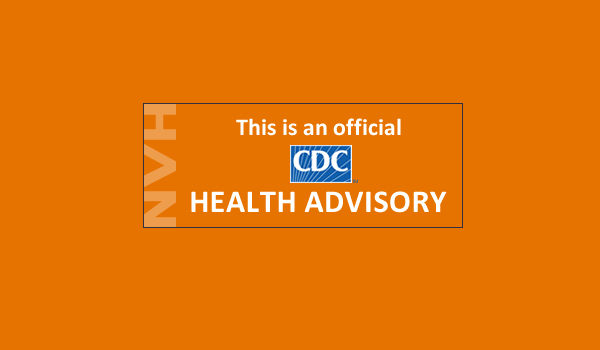The Centers for Disease Control and Prevention (CDC) is issuing this Health Alert Network (HAN) Health Advisory to notify healthcare providers, public health authorities, and the public about current increases in human parvovirus B19 activity in the United States. Parvovirus B19 is a seasonal respiratory virus that is transmitted through respiratory droplets by people with symptomatic or asymptomatic infection. In the first quarter of 2024, public health authorities in 14 European countries observed unusually high numbers of cases of parvovirus B19. In the United States, there is no routine surveillance for parvovirus B19, and it is not a notifiable condition.
Recommendations for Healthcare Providers
- Have increased suspicion for parvovirus B19 among people presenting with compatible symptoms (i.e., fever, rash, arthropathy, or unexplained anemia with low reticulocyte count).
- Provide preventive counseling and have a low threshold to test people who present with compatible signs and symptoms if they are at higher risk of severe parvovirus B19 disease, including:
- Pregnant people
- People with severely immunocompromising conditions, including leukemia or other cancers, organ transplant, HIV infection, or who are receiving chemotherapy.
- People with chronic hemolytic blood disorders, including sickle cell disease, thalassemia, and hereditary spherocytosis.
- When treating people with suspected or confirmed parvovirus B19, inform them or their caregivers about high-risk groups and advise any exposed contacts in those groups (e.g., who may be pregnant) to consult with their healthcare providers.
- Follow standard of care (e.g., professional society guidelines) for testing pregnant people reporting exposure to parvovirus B19 infection or who present with compatible signs and symptoms of maternal or fetal parvovirus B19 disease.
- Promote CDC recommendations for core prevention strategies to prevent respiratory illness, including practicing good hand hygiene and taking steps for cleaner air to reduce spread of parvovirus B19 and other respiratory viruses.
- People at higher risk of severe outcomes or complications who work in settings with higher risk of parvovirus B19 exposure should practice hand hygiene, avoid sharing food or drinks, and consider wearing a respirator or mask while at work. There is no proven benefit to removing someone from work in settings with higher risk of parvovirus B19 exposure.
- Follow recommended infection control precautions for persons with parvovirus B19 in healthcare settings.
Click here to learn more.




